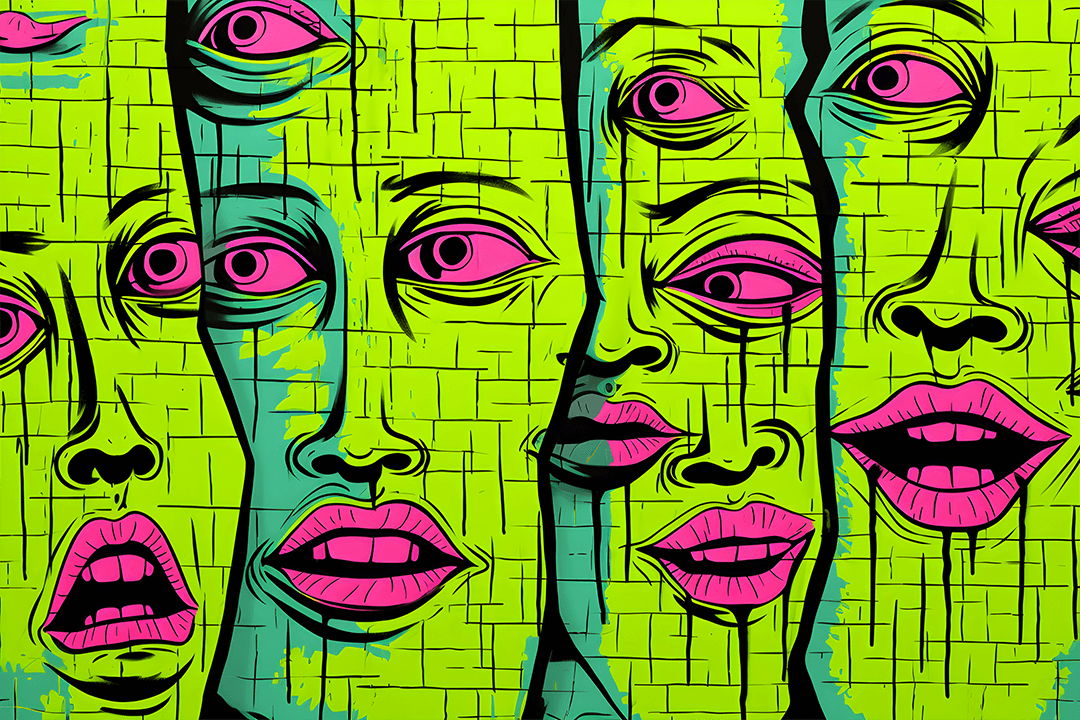Smart Tech – That Makes You Stupid?
Unleashing the truth: is your body the ultimate intelligent 'app' you've been overlooking all along? In a world obsessed with AI and advanced technology, journey through the wonders of organic intelligence and rekindle the innate wisdom within your own body.
With a deep passion for technology, I have always been quick to embrace the latest advancements as an early adopter. Since the age of 12, I have been engrossed in the captivating domains of web development. Writing complex scripts for advanced applications comes effortlessly to me. Still, there remains a perplexing challenge: despite my extensive technical expertise, understanding the intricacies of my body and the natural world around me – remains elusive.
As my reliance on technology grows, I can't help but notice a diminishing connection between my own body and the organic world that surrounds me. It's ironic that while I can compose intricate scripts, deciphering the complexities of my own physical being proves to be an elusive endeavor. Moreover, the human body can be seen as an intricately sophisticated biological code, making this contrast all the more intriguing.
Are we falling prey to the paradox of smart tech? Does our increasing reliance on advanced technologies compromise our innate instincts and intuitive understanding of our bodies, leaving us detached and disempowered? Consider this: the simple act of feeling our pulse, pulsating on our wrist, holds a thousand times more wisdom than any app or smartwatch. Could it be that we, as individuals, are the ultimate embodiment of intelligence, surpassing any artificial application? Upon deeper reflection, my conviction strengthens: there is an undeniable truth in acknowledging that you, as an individual, stand as the epitome of intelligence — indeed, the most intelligent "app" in existence.
When everyone else is talking about AI (artificial intelligence), I like to talk about organic intelligence. Actual living, breathing things.
Sure, these devices and intelligent applications have made it possible to take a more quantitative approach to health and our personal lives, but it has also made us a bit too reliant on them. When everyone else is talking about AI (artificial intelligence), I like to talk about organic intelligence. Actual living, breathing things.
In a world buzzing with discussions about AI and its limitless potential, I find solace in redirecting the conversation toward a topic that resonates deeply with me: organic intelligence. While AI undoubtedly possesses remarkable capabilities, I am captivated by the extraordinary complexity and beauty inherent in living, breathing entities. There is a certain allure in exploring the intricacies of natural systems, the remarkable adaptability of organisms, and the sheer brilliance of the human mind. Amidst the noise of artificial constructs, I derive immense satisfaction from shedding light on the wonders of organic intelligence and celebrating the awe-inspiring marvels of the living world.
While I do not harbor fear towards artificial intelligence, acknowledging its utility and progress, I am apprehensive about the potential consequences of drifting further away from our innate instincts, natural abilities, and connection with nature. Embracing new technologies should not come at the cost of forsaking our biological code. Instead, we must utilize these advancements to enhance and evolve our inherent potential. Striving for harmony between our bodies, minds, and the natural world becomes paramount in this pursuit. Reflecting upon my experiences using AI extensively over the past year, I am astutely aware of how it has proven beneficial in tasks such as document examination and grammar correction. However, I have also noticed a gradual decline in reliance on my own capabilities. This observation prompts me to question how we can strike a balance and ensure that technology is harnessed to augment our abilities while preserving our intrinsic human essence.
We must consider the steps to prevent innovative technology from diminishing our intellect. How can we safeguard our connection with our bodies and the natural world in the face of advancing technology? Maintaining this vital bond requires conscious effort and mindfulness. We must prioritize activities that keep us in touch with our physical selves and our peers, such as engaging in organic social activities, regular exercise, spending time in nature, and fostering mindful practices like meditation and self-reflection. Striking a balance between the convenience and benefits of technology and our innate human experiences will enable us to cultivate a harmonious relationship with our bodies and the natural world. By consciously embracing technology in a manner that complements our biological existence, we can safeguard our cognitive abilities and preserve our deep-rooted connection to the world around us.
Our bodies possess an innate wisdom refined through centuries and centuries of evolution. By cultivating a deeper awareness and reconnecting with our physical sensations, we can tap into a wellspring of invaluable knowledge and intuition that AI doesn't even come close to. It is a process that requires patience, self-reflection, and a willingness to listen to the subtle cues and signals that emanate from within. So, are you ready to embrace this transformative shift, honor your body's wisdom, and reclaim your inherent ability to make decisions rooted in self-trust?




